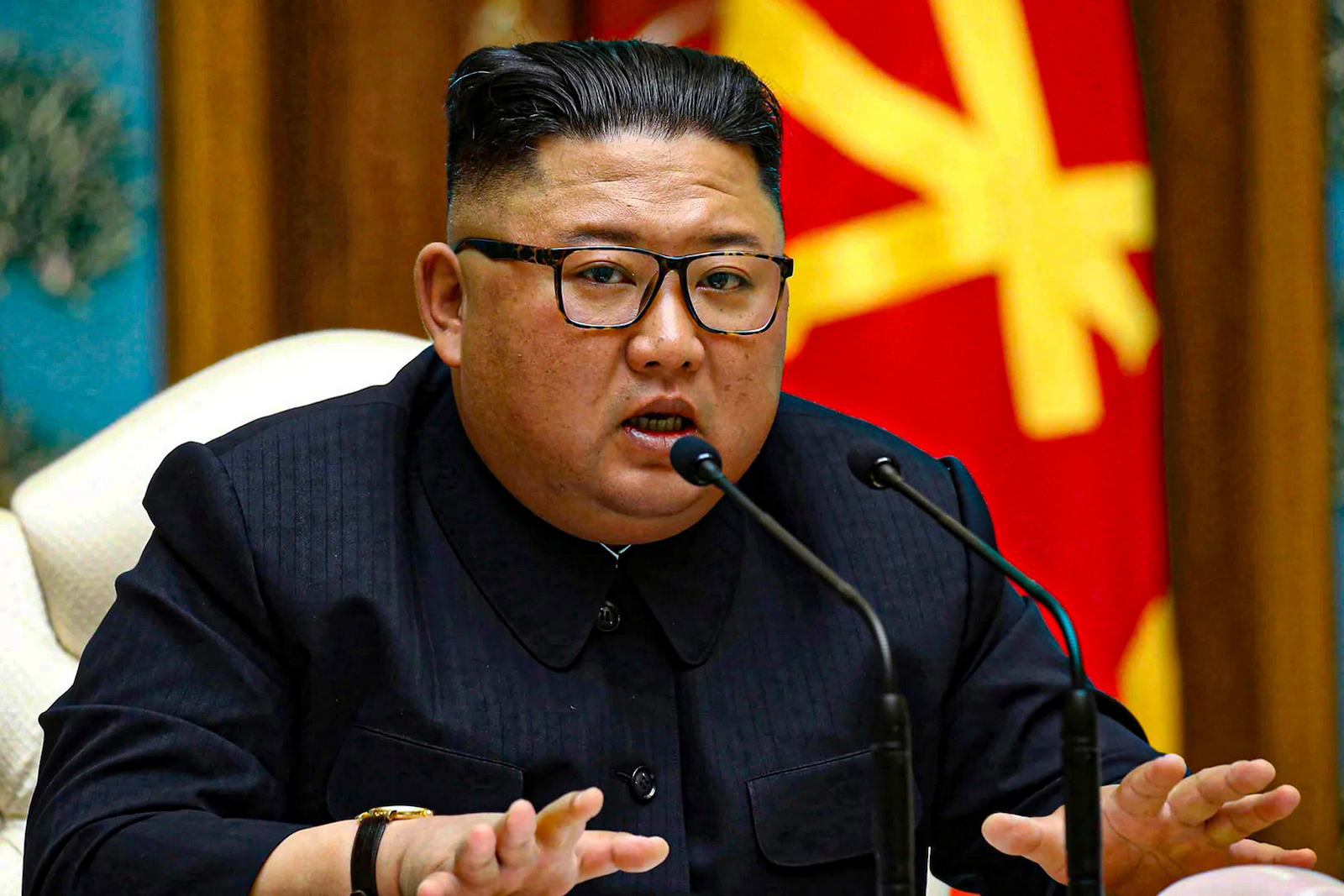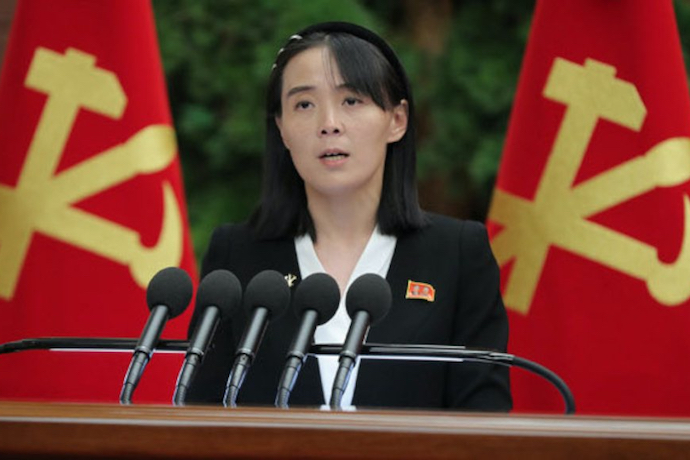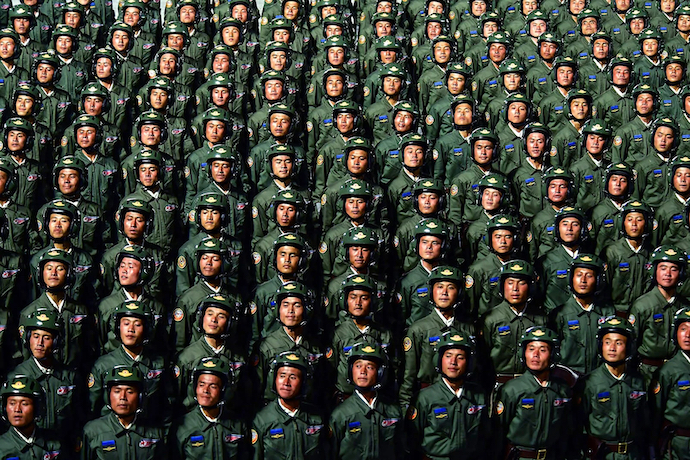
Why Denuclearization is Likely Dead in Korea
While the war in Ukraine is making daily headlines, North and South Korea are on the verge of an accelerating arms race. This year, North Korea has conducted an unprecedented number of missile tests as it expands its weapons program. North Korean leader Kim Jong-Un shows to have shifted from an approach that embraced simultaneous economic and military development to one that solely prioritizes military development in order to preserve his leadership. With the geopolitical tables now turned in Kim’s favor, the prospect of a denuclearized North Korea seems to have completely disappeared from sight.
In South Korea, Yoon Suk-yeol, the conservative president, assumed office last May. Contrary to his progressive predecessor Moon Jae-in, who insisted on dialogue and détente with the North, Yoon is taking a different approach. His administration signaled a willingness to deploy additional THAAD (Terminal High Altitude Area Defense) anti-missile launchers and has invigorated joint military drills with the U.S. Expansion of the U.S.-deployed THAAD missile shield would certainly aggravate Beijing. Chinese Foreign Ministry spokesperson Zhao Lijian commented that: “China’s opposition to the U.S. deployment of THAAD in [South Korea] does not target the ROK side, but the U.S.’s malicious intention to deliberately undermine China’s strategic security.”
South Korea, however, is increasingly frustrated with China’s inability to keep the North Korean threat in check. So far this year, Pyongyang has conducted a record 18 missile tests. Kim will probably carry out a seventh nuclear test by the end of 2022. Also, war rhetoric is once again flaring up in the North. A month ago, the North Korean leadership hinted at the possibility of utilizing its nuclear arsenal against the U.S. and South Korea. This has affected public sentiment in South Korea, where 71 percent of its people are now in favor of their country developing its own nuclear weapons, thereby showing decreasing confidence in Washington’s extended deterrence. With both Korean governments vowing to take a harder stance, reconciliation seems further away than ever.

Illustrative of these deteriorating relations is the North’s reaction toward Yoon’s recent announcement on how he would ‘engage’ Pyongyang. Yoon promulgated an initiative that included an extensive program of economic assistance, development, and infrastructure investment in exchange for a comprehensive, phased, and step-by-step denuclearization of North Korea and the normalization of bilateral relations. Kim Yo-Jong, Kim Jong-Un’s powerful sister who acts as the country’s mouthpiece, was quick to denounce Yoon’s proposition in an extraordinarily belligerent way. She explicitly shunned the possibility of engagement with the South while Yoon is in office.
This rejection could hardly come as a surprise to Yoon, as he surely knows that Kim perceives his country’s nuclear status to be imperative to his survival. This has led to some commentators arguing the sincerity of Yoon’s offer. By now, denuclearization has clearly become a non-starter for the North Korean leader.
Although Kim may have relinquished economic development as one of his main goals, landmark geopolitical shifts worldwide could still offer him this opportunity irrespective of any moves toward denuclearization. The war in Ukraine has forced Russia to look for new partnerships while rising tensions over Sino-U.S. rivalry are likely to thaw relations between Pyongyang and Beijing. Both Russia and China have already made strategic overtures to North Korea. If these developments persist, Kim will not need improved relations with the West to bring about economic growth. The U.S. and South Korea are thus running out of options on ways to curb Kim’s behavior.
The days of rapprochement between Pyongyang and Seoul and Washington are long gone. After the failed Hanoi Summit in 2019, where Kim and former President Donald Trump tentatively sought to work out their differences, things went sideways. Trump refused to offer his counterpart sanctions relief up front, while Kim was adamantly reluctant to unilaterally disarm. Even though Moon desperately continued to make overtures toward Kim, he could not prevent the North Korean leader from reassuming a hardline stance after the Hanoi debacle. As with the toppling of Saddam Hussein in Iraq and Muammar Qaddafi in Libya, the war in Ukraine once again shows Kim how crucially important nuclear deterrence is in securing his survival. Thus, we are back to square one with the Korean conundrum. But now with a North Korean leadership that is even less inclined to denuclearize and that perceives a geopolitical environment conducive to simultaneous military and economic progress.
North Korea pundit Ruediger Frank points out that North Korea could benefit from Russia’s invasion of Ukraine since the war has drastically altered the global landscape. As Russia is becoming increasingly isolated, it will be more inclined to cozy up with international pariahs like North Korea to offset economic losses and use these relationships as a political tool. Frank may well be right as Putin recently reached out to Pyongyang. According to North Korean state media, the Russian president sent a letter to Kim saying that closer ties would be in the best interest of both countries. Thus, the renewed Cold War standoff between Russia and the West could offer Kim an opportunity to reinforce relations with Moscow, thereby making him less dependent on China and alleviating his position of international isolation.

What the Russian president exactly meant with ‘closer ties’ remained vague. Russia could, for example, allow North Korean laborers to work in the Siberian logging industry, thereby providing the Kim leadership with much-needed foreign currency. It could also step-up oil exports to North Korea to generate income (or other forms of compensation) or seek military cooperation in support of its war effort in Ukraine. This would represent a blatant violation of the multilateral sanctions package in place; but given the isolated position Moscow finds itself in, it has no reason to abide by, particularly U.S.-spearheaded, North Korea sanctions.
Of course, deepening ties with the Kim leadership hardly outweighs the economic losses Russia incurred due to its aggression in Ukraine. Yet, every little bit helps, and for Pyongyang, it could make a huge difference. Frank also argues that North Korea could provide the Kremlin with political backing in exchange for economic and diplomatic support. North Korea already voted against a U.S. resolution that condemned Russia for its invasion of Ukraine. Moreover, North Korea is one of the very few countries to recognize the two Russia-backed breakaway republics of Donetsk and Luhansk. Russia, in turn, vetoed a U.S.-drafted United Nations resolution to tighten sanctions on North Korea. These developments may very well herald the dawn of a new courtship between North Korea and Russia.
Also in Beijing, North Korea is likely to find increased backing and support. Tensions between China and the U.S. are heightened, as the two countries continue to clash over trade, Taiwan, and numerous other issues. Moreover, China is worried about Seoul’s tougher stance on Pyongyang and its intention to strengthen its military ties with Washington. This creates opportunities for Pyongyang to reinvigorate relations with Beijing and partner up in countering U.S. influence in the region.
Last February, Chinese President Xi Jinping emphasized the importance of cooperation with North Korea. China and Russia have been actively shielding North Korea from further international isolation by vetoing the beforementioned UN resolution and advocating a rollback of existing sanctions. Beijing also seems to have weakened its sanction enforcement on North Korea over the last three years, as it has been turning a blind eye to much of the illicit sanction evasion activities on its territory. Clearly, Pyongyang’s strategic value for Xi increased fundamentally.
Surely, Kim is poised to seize on Washington’s rift with China and Russia. Despite Moscow’s and Beijing’s wariness of Pyongyang’s nuclear adventurism, they are likely to provide Kim with economic and diplomatic support. This could lead to an economic revival of his country, as Kim does not necessarily need other countries other than China and Russia to buttress his impoverished economy, and at the same time embolden his arms buildup with impunity.
For three decades now, the U.S. and South Korea have been trying to persuade North Korea to reverse its nuclear weapons program, but to no avail. Regardless of sanctions, North Korea continues to steadfastly advance its nuclear and missile technology. The more time that elapses, the stronger Pyongyang will become. Yet, President Joe Biden and his South Korean counterpart have shown little appetite for actively enticing Pyongyang to negotiate, as they continue to refuse sanctions relief prior to steps toward denuclearization. This approach is failing. The U.S. and South Korea are best advised to apply more pragmatic methods rather than insisting on Kim to completely, verifiably, and irreversibly dismantle his nuclear program. Many experts agree that this has become a totally unrealistic goal to attain.
The more cogent option would be to embark on arms control negotiations and ease sanctions prior to denuclearization. The Kim leadership may, for example, be receptive to proposals to limit its long-range missile activities in exchange for an alleviation of certain sanctions. Through tit-for-tat diplomacy, more avenues could subsequently be explored to bring about additional arms control and normalize relations. Kim is hell-bent on becoming less dependent on Beijing, so he may very well be susceptible to initiatives that do not require him to put all his eggs in the Chinese basket. From where we are standing now, this seems to be the only feasible way of containing the North Korean military threat. It is about time for US and South Korean policymakers to come to terms with the facts and put denuclearization on the back burner.
